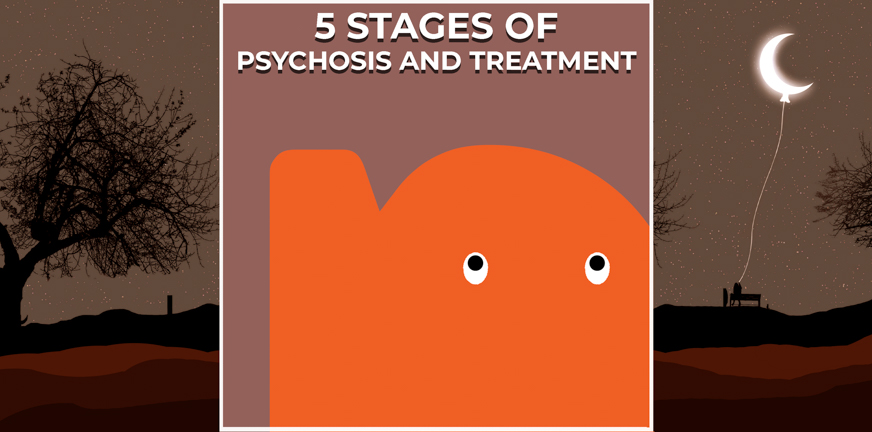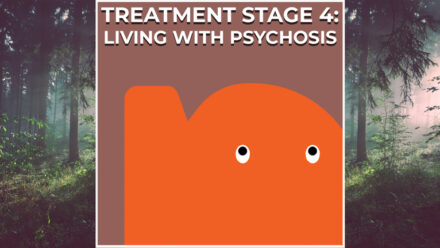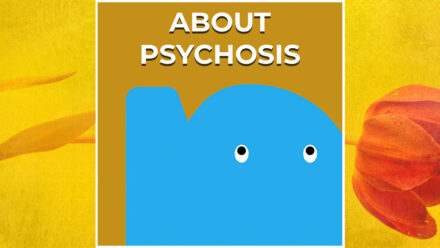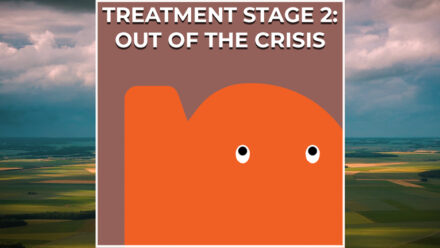
Recovering from a mental disorder is often described as the four stages of recovery. We add a fifth stage of psychosis and recovery, because we include the ‘early stage’ that leads up to the psychosis.
Explanation of the early stage
It is important to also look at the stage that comes before a psychotic episode. We call this the early stage, pre-stage or oncoming psychosis. Someone who has never gone through psychosis before, will slowly and almost unnoticeably start to behave differently during this stage. Only afterwards, when the first psychosis is over, can this different behaviour with the wisdom of hindsight be identified as the start of a psychotic episode.
When someone has gone through psychosis before, this early stage is the period when there are signs that someone might be going off-track again. When these signals are recognised, heading towards a psychosis can be adjusted if you and the people around you act in the right way. An oncoming psychosis can thus be prevented in the early stage.
The five stages of psychosis and recovery
By adding the early stage, we get to five stages of psychosis and recovery. These stages are not set in stone. Think of them as only a model, based on what many people who experienced psychosis have said afterwards about what they have gone through. These experiences are combined with the clinical experience of care workers and people with patient experience in mental healthcare.
Remember that recovery is a deeply personal process. What works for you and what doesn’t, is different from person to person and always needs an individual approach.
Watch the animation “How do I get the most out of my treatment?”




